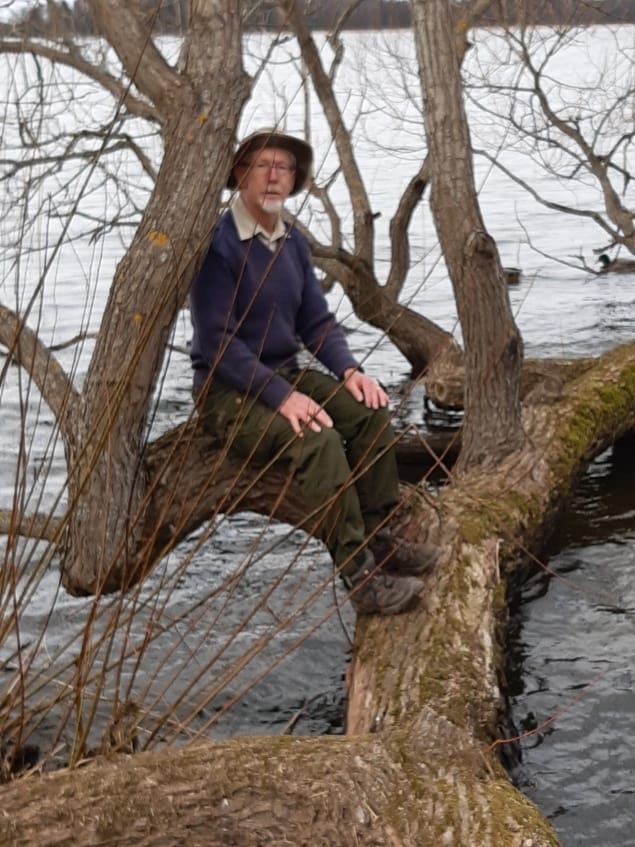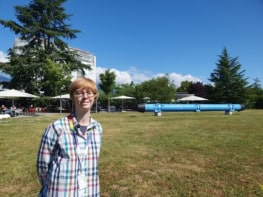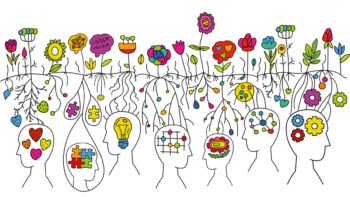Steven J Savage is a senior scientist for materials technology at a defence research institute in Stockholm, Sweden.
This post is part of a series on how the COVID-19 pandemic is affecting the personal and professional lives of physicists around the world. If you’d like to share your own perspective, please contact us at pwld@ioppublishing.org.

I have spent my entire career researching materials technology, usually in an environment where national security is the raison d’être. I am now semi-retired, and in recent years I have become interested in the ethical impacts of new technology on society. I have lived and worked in the UK, the US and now Sweden, and my family and friends live in the UK and Belgium. I currently interact with colleagues in the US, Europe, Asia and Australia.
The pandemic has had relatively little impact on my life as a scientist. In this, I consider myself fortunate. I write technical reports, grant proposals and journal papers, and I participate in telephone and video meetings from my home office in much the same way as before. I go to my place of work when needed, which of late is less frequently since more of my colleagues are now also working from home. Virtual coffee breaks are a poor substitute for the real thing (and the keyboard gets sticky), but they are better than nothing.
A different path
Sweden has taken a much more relaxed approach to the challenges posed by COVID-19 than most other nations. While other states rapidly imposed mandatory countrywide quarantines and restrictions on non-essential travel, Sweden continues to follow a “softly, softly” policy – one that was even described (recently, in a quality daily newspaper) as a laissez-faire attitude. However, that is the policy of the government, which in my view (perhaps I am being unjust) seems to be a hive of (in)activity. In recent years this has become the status quo, so perhaps this is an example of normal attitudes being applied in abnormal times. In contrast, many employers were quick to allow staff to work from home even if they were healthy, and everyone was required to stay away if they showed any symptoms. Sweden is already highly “digitized” so perhaps this was easier for us than for other countries.
There are restrictions on gatherings of more than 50 people, and restaurants may only offer table service – no buffets or eating at the bar. There is a voluntary code of social distancing, which in the main does seem to be observed, although an increasing number of complaints are being made related to city-centre bars and restaurants, and a form of policing is now being implemented. Public transport continues to operate, and Stockholm, like other major cities, has experienced crowded buses and trains due to absences of drivers and other staff. Most domestic air travel has ceased, simply because there are no passengers. Shops remain open, albeit with fewer customers than usual. However, the hardware stores seem to be benefitting as citizens take on home improvement projects. Swedes are keen do-it-yourself enthusiasts! There has been little evidence of hoarding, and shelves in food stores remain well-stocked.
Worrying signs
The health service seems to be coping, although it seems that all efforts are devoted to treating COVID-19 patients, with all other activities on hold. This is clearly worrying, especially for patients needing immediate treatment. Early fears that the hospitals, intensive care units and ventilator capacity would be overwhelmed seem to be unfounded, but having said that, and despite optimistic comments from some, there is little to suggest that the infection rate is dropping. It doesn’t help that testing is still relatively infrequent, although recently a few hundred random tests were performed to estimate the level of infection in the Stockholm population. Another worrying sign is that many care homes for the elderly have cases of coronavirus. The mortality in Sweden is significantly higher, by perhaps an order of magnitude, than our neighbours Norway and Finland, both of which were quick to impose strict quarantine measures.
Because of these facts, there is increasing criticism, supported by national and international experts, of the Swedish strategy. Most worrying for me personally is the lack of transparency shown by Swedish authorities, primarily the Public Health Agency, which is releasing very little information other than correct but unhelpful statements like “very little is known for certain” and “numbers are unreliable because they may relate to different measurement methods”. I am worried, not so much for my own safety but for those more vulnerable.
Searching questions
There is a downside and an upside to any event, and the COVID-19 outbreak is no exception, as it presents an opportunity that even the maddest of mad scientists would not consider presenting for ethical review as an experiment. While we acknowledge the disastrous effects of the pandemic both on citizens and on national economies, we must also ask, what can we learn from this? Better still, what must we learn from this?
Lack of preparedness on the part of local, national and international authorities and healthcare organisations is a recurring theme, in Sweden and elsewhere (Finland, which has maintained a robust level of national preparedness, is a notable exception in our region). Shortages of simple personal protective equipment (PPE) such as masks, gloves, visors, and gowns, as well as devices such as ventilators, continue to cause concern. Sweden and much of the Western world has clearly taken the “just-in-time” economically optimized philosophy to an extreme. Emergency stocks of elementary equipment and medicine such as paracetamol and sedatives have been reduced or eliminated.
The weakness of this approach is now painfully clear. In military terms, the logistical supply line is interrupted. That a very large amount of PPE originates from a single source – China – is also a weakness, open not only to accidental catastrophes such as COVID-19 but also to deliberate geopolitical manipulation. This fact has been widely recognized for at least a decade, without any significant action being taken.
Much of the Western world has clearly taken the “just-in-time” economically optimized philosophy to an extreme
Also worrying is that fact that existing crisis management plans have, in at least some cases, never been implemented. There are newspaper reports of a regional crisis management plan (which included an emergency supply of PPE) from one Swedish region dating back to 2006, but this has still not been implemented. Similar reports are emerging from the UK.
Simple numbers, complex reality
Information is important; accurate and timely information even more so. Although China recently revised its initial number of deaths upward, indicating a reason to carefully examine the data, there seem to have been relatively few deliberate attempts to spread “false news” or “alternative facts”. Nevertheless, the information available has, in my opinion, fallen short of being adequate. We have been supplied with simple numbers: of infected patients, of intensive care patients, of deaths and more recently rates of infection, and the inevitable comparisons between different nations. Sweden, having chosen to apply a policy of voluntary social distancing, is frequently used for comparison, but since the numbers are based on different parameters they are likely to be misleading. Even deaths are unlikely to be reported accurately, since the cause of death may or may not be attributed to COVID-19, and there is latency in the reporting.

Physics in the pandemic: ‘Meeting face-to-face is a luxury we can’t afford right now’
What especially concerns me is the psychological impact of the pandemic. I have little evidence of any attempts in any country to address this aspect, other than occasional platitudes that boil down to “don’t panic, we have the situation under control” – platitudes that are frequently and immediately contradicted by someone on the “front line”. The people of Sweden and other nations need reliable and timely information to ally their fears; open and transparent discussion of alternatives; and explanations for the actions taken. For me, “don’t panic” sends entirely the wrong message.
In this case, time will not tell which strategy (to quarantine or not) was right or wrong. Is Sweden following a sensible policy? There seems to be mounting evidence against this, but the question is far too complex for a simple yes/no answer. Which is most important – the national economy or human life? There is no right or wrong answer, simply varying degrees of better or worse solutions. What is important is to learn from the experience. There is sound scientific evidence that the risk for pandemics is increasing (see, for example, the World Health Organization’s 2019 annual report A world at risk) but as noted, there is little point in performing a risk assessment, developing crisis management plans and then putting it all on a shelf to gather dust.
For me, “don’t panic” sends entirely the wrong message.
In the meantime, I continue to work using video conference calls, telephone and email. These are increasingly essential tools – imagine the current crisis without modern communication! A truly horrifying thought. This crisis will pass, as have previous pandemics, natural and human-made catastrophes. Let us hope we take to heart those lessons which can be learnt and take precautions against making the same mistakes again. To quote one of the world’s greatest statesmen, “Never let a good crisis go to waste.”



